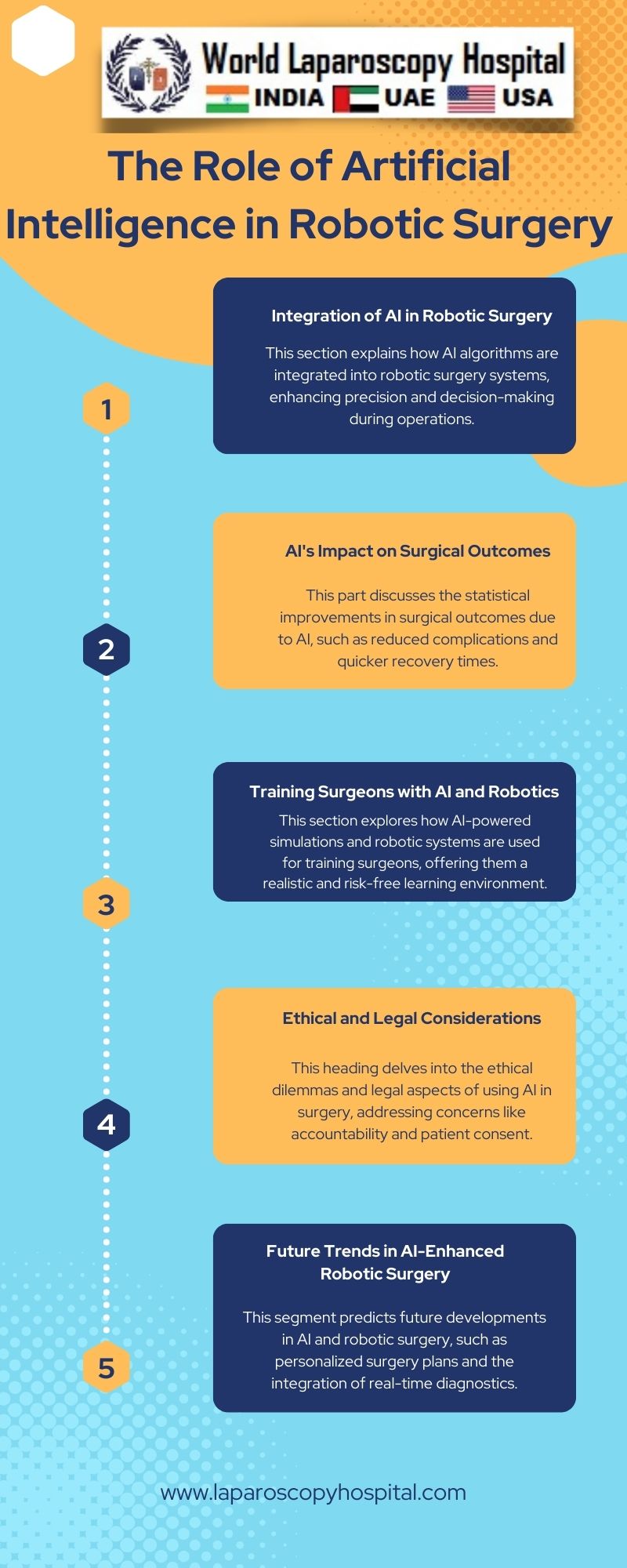Introduction to AI in Robotic Surgery
The integration of AI into robotic surgery represents a groundbreaking advancement in medical technology. Robotic surgery, initially reliant on the direct input of human surgeons, is being transformed by AI's ability to analyze data, learn from past surgeries, and assist in real-time decision-making.

Enhanced Precision and Efficiency
AI algorithms, when integrated with robotic surgery systems, enhance precision and efficiency. By analyzing vast amounts of medical data and previous surgical outcomes, AI can guide surgeons with precision, reducing human error. This precision is crucial in complex surgeries where millimeter-level accuracy can determine the success of the operation.
Improved Patient Outcomes
AI-driven robotic surgery has been linked to improved patient outcomes. Faster recovery times, reduced risk of infection, and less postoperative pain are some of the reported benefits. These improvements stem from the minimally invasive nature of robotic surgeries, made more accurate and efficient through AI.
Customized Patient Care
One of the most significant advantages of AI in robotic surgery is the potential for personalized patient care. AI systems can analyze patient-specific data, such as medical history and genetic information, to tailor surgical approaches to individual patient needs, enhancing the efficacy and safety of procedures.
Training and Simulation
AI also plays a vital role in training surgeons. Through virtual simulations powered by AI, surgeons can practice complex procedures in a risk-free environment. These simulations, based on real patient data, can replicate a wide range of surgical scenarios, enhancing the training experience.
Challenges and Ethical Considerations
Despite its benefits, the integration of AI in robotic surgery is not without challenges. Ethical considerations, such as the responsibility in case of surgical errors and the confidentiality of patient data, are critical issues. Additionally, the high cost of AI-integrated robotic systems limits their accessibility.
The Future of AI in Robotic Surgery
The future of AI in robotic surgery is promising. Continuous advancements in AI algorithms and machine learning will further enhance the capabilities of robotic surgery. Integration with other technologies, like augmented reality and 3D printing, could also pave the way for more innovative surgical procedures.
Conclusion
The role of AI in robotic surgery is transformative, offering enhanced precision, improved patient outcomes, and personalized care. Despite challenges, its potential in revolutionizing surgical procedures is undeniable. As technology continues to advance, AI's integration in robotic surgery will undoubtedly play a pivotal role in the future of medical care.